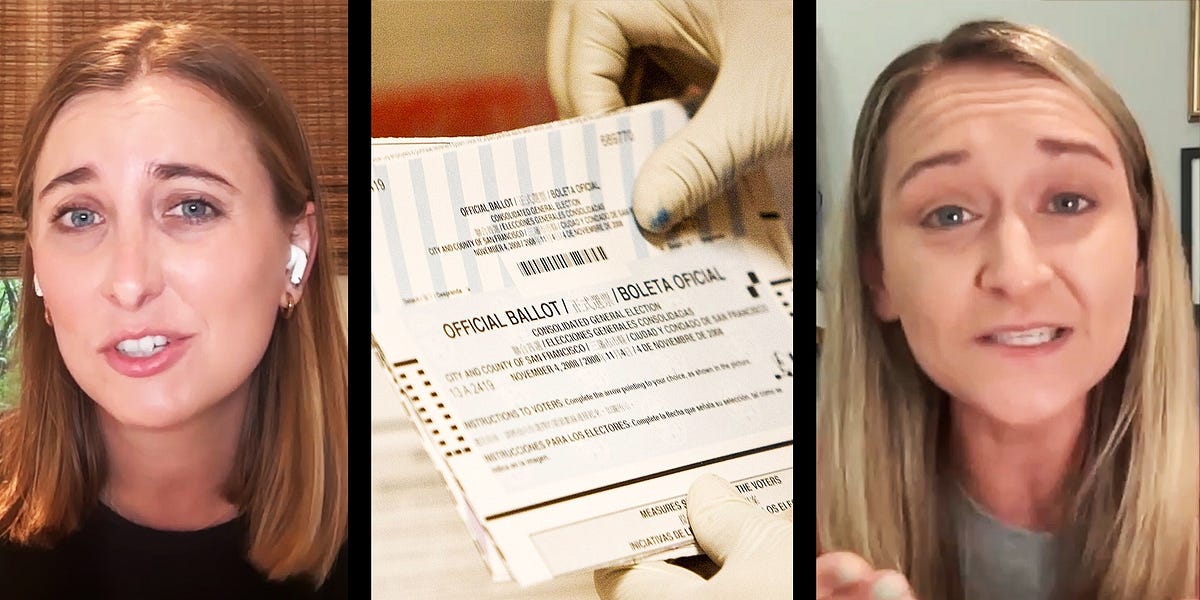
GOP Election Tactic Coming for You!
April 24, 2025
Inside the Fiasco at the National Security Council
April 24, 2025Meta’s Oversight Board this week upheld decisions by Facebook and Instagram to leave up two posts targeting trans women even after numerous users reported them as harmful. The majority of the Oversight Board found that neither post violated Meta’s content guidelines for “Hateful Conduct” or “Bullying and Harassment,” basing the decision on reporting technicalities and recent changes to Meta’s content rules, per a joint statement. The Oversight Board further recommended Meta remove the right-wing epithet “transgenderism” from their “Hateful Conduct” policy to “frame its content policies neutrally.”
The Oversight Board decision concluded “public debate on policies around transgender peoples’ rights and inclusion is permitted, with offensive viewpoints protected under international human rights law on freedom of expression.” Additionally, “the majority of the Board found there was not enough of a link between restricting these posts and preventing harm to transgender people, with neither creating a likely or imminent risk of incitement to violence.” The ruling also said the posts didn’t qualify as bullying or harassment.
Prominent LGBTQ+ rights organizations, including GLAAD, The Trevor Project, AIDS United and TransAthlete, had submitted public comments on these cases highlighting the harms of misgendering and deadnaming trans people. They decried the Oversight Board’s decision, saying the posts, one viewed over 43,000 times and one viewed over 140,000 times, represent irrefutable examples of harassment rather than free speech or contributions to legitimate debate.
The Meta Oversight Board, a semi-independent body that sets precedent for the company on content moderation, began work in 2020. As of April 2023, the organization appoints its own members, who cannot be employees of Meta, though the larger company funds the initiative.
However, two public policy executives at Meta cautioned the Oversight Board to handle these specific cases “sensitively,” especially since the posts were popularized by a well-known anti-LGBTQ+ influencer, The Washington Post reported. According to the Post, the videos were flagged after being boosted by Libs of TikTok. Chaya Raichik, the woman behind the anti-LGBTQ+ account, hovers in President Donald Trump’s orbit; earlier this month, she posted photos to the social media platform X, purportedly from an ICE raid in Arizona with Homeland Security Secretary Kristi Noem.
“This tells LGBTQ people all we need to know about Meta’s attitude towards its LGBTQ users — anti-LGBTQ hate, and especially anti-trans hate is welcome on Meta’s platforms,” Sarah Kate Ellis, the CEO and president of GLAAD, said in a statement. “This is not ‘free speech,’ this is harassment that dehumanizes a vulnerable group of people. LGBTQ people’s humanity is not a matter of ‘public debate.’”
This “blatant harassment” clearly violates Meta’s Community Standards, said Leanna Garfield, the Social Media Safety Program manager at GLAAD, in a statement to The 19th. Her team spearheads the annual Social Media Safety Index, which evaluates platforms based on protections for LGBTQ+ people online.
The Index gave both Facebook and Instagram failing grades in 2024 and noted that their scores were lower than in 2023. GLAAD has written extensively about the negative mental health impacts of targeted deadnaming and misgendering of trans people online, urging social media platforms to strengthen their rules to prevent this kind of abuse.
“Hate speech and harassment policies exist to protect everyone from discrimination online, which translates to real-world harm for people, notably historically marginalized communities who continue to be increasingly terrorized by prominent accounts for political and economic gain,” Garfield said in a statement.
The decision involves two posts in the United States, grouped by the Oversight Board as “Gender Identity Debate Videos.” One is a video by a cisgender woman who taped herself confronting a trans woman in a restroom at a university; the caption includes “male student who thinks he’s a girl.” The other video is of a transgender girl winning a track race, with some negative reactions from viewers. The caption calls the teen a “boy who thinks he’s a girl,” states the minor’s name and misgenders her.
Many public comments urged the Oversight Board to protect “free speech” and debate, positing that banning misgendering would actually be discriminatory to “biological women.”
“The context and timing for this decision couldn’t be worse — anti-trans violence and discrimination is spreading like cancer,” Dia Kayyali, an independent tech and human rights adviser, told the 19th. “Across the globe, anti-trans, and more broadly, anti-LGBTQIA+ policies, are slashing away at human rights for transgender people.”
Kayyali submitted a public comment on the case last year arguing that the posts should be removed for violating both the “Hate Speech” and “Bullying and Harassment” policies.
“Marginalized people are very used to Big Tech not working in their interests. This latest move by Meta’s Oversight Board shows exactly why: these companies will always bend to power,” Sarah Philips, campaigner at the digital rights nonprofit Fight For The Future, told The 19th.
One of the complicating factors in determining whether these posts violated Meta’s rules has to do with how they were reported. In order to report bullying and harassment, a private individual must file a report on their own behalf. The Oversight Board noted that the woman confronted in the bathroom harassment video didn’t report the video to the company, rendering all other reports invalid.
Usually this requirement is waived for minors — that is, anyone can report bullying and/or harassment of 13- to 18-year-olds. However, there is an exception for minors who are deemed to be “voluntary public figures” who have engaged with their own fame. This is in contrast to “involuntary public figures,” who have not expressed agency in dealing with their influence.
The majority ruled that the teen athlete was exempt from protection afforded under the “Bullying and Harassment” policy because they were a voluntary public figure. The majority said that because the youth made the personal choice to compete in a state-level athletics championship, and had participated in media coverage, she had engaged with her own fame.
On the other hand, the minority said there wasn’t a “sufficient basis” for saying the teen engaged with their fame, as the claim was “solely on the basis that she participated in an interview with a school newspaper a year before the athletics competition shown in the video took place.”
While this case was accepted by the Oversight Board in August 2024, on January 7 of this year, Meta CEO Mark Zuckerberg announced changes to the company’s content moderation policies. The hate speech policy was renamed to address “Hateful Conduct,” several rules were removed, including bans on calling people mentally ill due to their gender or sexuality and “statements denying existence.” The revised guidelines also explicitly make room for “sex- or gender-exclusive language” when discussing same-sex spaces like bathrooms or sports teams.
“In a time when the Trump administration uses the force of every agency and law enforcement at their fingertips to crack down on speech, protest, and resources for marginalized folks, aligning their moderation policies to what will play well with the president shows exactly where Meta stands, sucking up to power and in the process, doing the dirty work of the administration,” Philips wrote.
This week’s Oversight Board decision evaluated the videos under pre- and post-January 7 community guidelines. Majorities found that neither video violated the “statements denying existence” statute, even though it is no longer in effect.
The Oversight Board notes that prior to the January 7 changes, “there were exceptions under Meta’s internal guidance (not available publicly) to specifically allow calls for gender-based exclusion from sporting activities or specific sports, as well as from bathrooms.” The Oversight Board applauded Meta for being transparent about these exceptions in the current guidelines.
Kayyali notes that the decision includes both “majority” and “minority” perspectives. “The majority opinion contorts itself to minimize the connection between online content and violence and discrimination faced by trans people globally,” they wrote. “The minority rightfully emphasizes this point.”
This ruling gives “terrible validation to Meta’s new harmful approach to content moderation” and shows “Meta is moving its products away from longtime industry standard best practices and deeper into toxicity that harms users,” said Ellis, GLAAD’s CEO. “All of Meta’s customers, creators, and advertisers should demand the company create safe products and not allow blatant harassment.”
Kayyali urged users to leave Meta platforms, which profit off of advertising to a large customer base. They acknowledged that it is a privilege to leave social media platforms.
“For transgender people on Meta platforms, you are definitely not safe, and with its January 7 policy changes Meta wants to make sure you know that,” Kayyali wrote. “The Board has proven that it’s just not the adult in the room some people were hoping it would be.”
Great Job Jasmine Mithani & the Team @ The 19th Source link for sharing this story.





